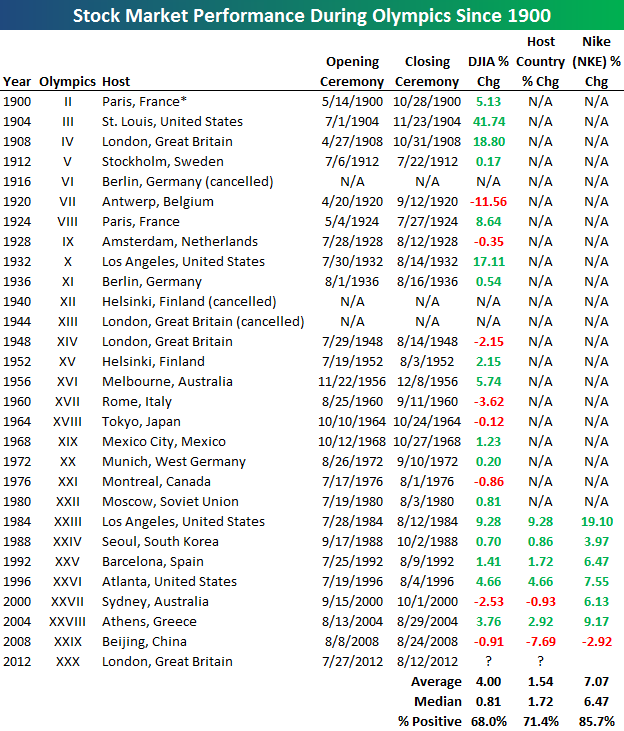With the opening ceremony of the London Olympics starting this Friday, we went back and calculated the performance of the Dow Jones Industrial Average (Dow) during each Summer Olympic Games since 1900. We also found the performance of the market for host countries during the Summer Olympics since 1984.
As shown, the Dow has averaged a gain of 4% from the opening ceremony to the closing ceremony over 26 Summer Olympics since 1900 (3 of the 29 were cancelled due to world wars). The median return has been smaller at +0.81%, and the index has been positive 68% of the time. From 1980 through 1996 (5 Summer Olympic Games), the Dow gained during every Summer Olympics, but since 2000 (3 Olympics), the index has fallen twice and gained once. During the 2008 Beijing Olympics, the Dow fell 0.91%, which actually wasn’t that bad since we were in the middle of a financial collapse.
The stock markets of host countries have done well during the Games as well. Since 1984, host countries have averaged a gain of 1.54% (median 1.72%) from opening ceremony to closing ceremony, with positive returns 5 out of 7 times (71.4%). The Beijing Games were not kind to Chinese stocks, however. During the 2008 Games, China’s Shanghai Composite fell 7.69%. If you remember, there was extreme optimism for China heading into the 2008 Games, as the country was set to display its extravagant growth. Unfortunately, investors sold the news, and it ended up being a terrible time for Chinese markets. With Europe in the depths of despair heading into the 2012 Olympics, London doesn’t have to worry about displaying any extravagance. Instead, they’ve got to worry about digging out of a deep recession.
Finally, we also looked at the performance of Nike (NKE) during the Summer Olympics since 1984. As shown, Nike has gained during six of seven Olympic Games, with the only decline coming during the 2008 Games. NKE’s average gain from opening ceremony to closing ceremony has been strong at +7.07%.





